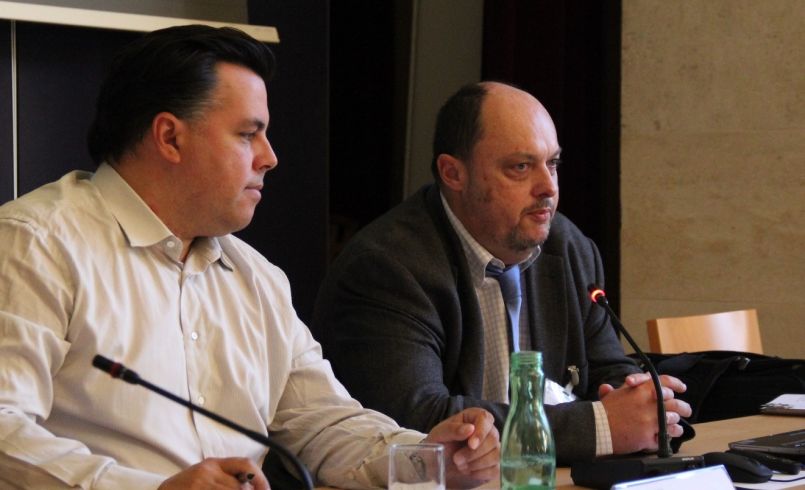- Partnership for Peace Consortium of Defense Aca...
- Armenia and Azerbaijan implement crisis hotline...
Armenia and Azerbaijan implement crisis hotline in the wake of RSSC SG recommendation; ceasefire violations decline.
foto_5edited.jpg

Vienna, Austria, December 7, 2018 – Since the establishment of a crisis hotline between Armenia and Azerbaijan in October 2018, reports of ceasefire violations have decreased approximately 75% according to George Niculescu, Partnership for Peace Consortium’s Regional Stability in the South Caucasus Study Group (RSSC SG) co-chair. These developments come in the wake of RSSC SG recommendations to keep communications channels open between the leadership of Armenia and Azerbaijan.
The recommendations, made at the 10th RSSC workshop held in Reichenau in November 2014 in which both Armenian and Azerbaijani academics participated, were widely disseminated to approximately 800 academic and governmental institutions. The theme of maintaining open communications channels has been an ongoing one for subsequent workshop participants.
The RSSC SG serves as a Track 2 diplomacy initiative under the framework of the Partnership for Peace Consortium of Defense Academies and Security Studies Institutes with strong support from the Austrian National Defence Academy. The group regularly brings together participants from the South Caucasus region, including academics from the areas of Abkhazia, South Ossetia and Nagorno Karabakh as well as NATO, EU and NGO representatives.
According to George Niculescu, co-chair of the Study Group, “the opening of a new communication channel agreed several weeks ago by the president of Azerbaijan, Ilham Aliyev, and the Prime-Minister of Armenia, Nikol Pashinyan, is a sensational step. In effect, an important recommendation by our participants has been acted upon and put into practice.”


